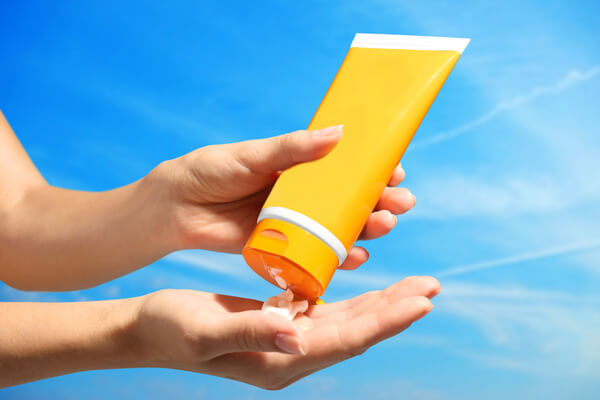New Year's Skincare Resolution #4: Always Apply Sunscreen

Skin cancer is the most common cancer in the United States.
In the United Kingdom, research has revealed that skin cancer rates have more than doubled since the 1990's. So, it's puzzling how despite the looming danger of skin cancer and the protection sunscreen offers against it, people choose not to wear it! Some people only wear it during the summer, believing that during the cooler months they're safe. But in reality, sunscreen should be worn every single day. Temperature and UV levels are not related.
Common Misconceptions
There are numerous misconceptions and half-truths surrounding sunscreen use. For example, some people believe suntanned skin is healthy and that indoor tanning is healthier than direct sun exposure. Both thoughts are grossly incorrect. In fact, some believe that you stop wearing sunscreen in winter. Especially if you're bundled up or darker-skinned.
A suntan is a sign that skin damage is setting in. We need to start likening it to a deeper, less aggressive sunburn. Tanning beds, on the other hand, emit UV rays which break our skin's elasticity over time, accelerating the damage. How could one possibly think that's healthy?
Although clothing provides some protection, the lighter an item is - the less protective it is. Please note that wet clothing has the lowest SPF (Skin Protection Factor). While dark skin may not burn easily in the sun, it still gets damaged, nonetheless. If you’re particular about your vitamin D intake, laying in the sun for hours to accumulate vitamins. It is very much present in many everyday foods and the supplements are readily available at most pharmacies.
UV Rays in Winter?
Is the Pope Catholic? Does the Sun emit UV rays all year round? The answers are the same for both. A resounding yes. There are two types of UV rays: UVA and UVB. The intensity of UVB is lessened by cloud cover. But the UVA type, which makes up 95% of UV rays, penetrates the atmosphere all-year round. Also, contrary to some’s beliefs, they’re very much present in the colder and cloudier months. UVA rays are also responsible for wrinkles, dark spots, and skin cancer.
In fact, the sun-shielding, greenhouse layer is at its thinnest in winter. Thus, giving UV rays the best shot at your skin. Winter winds will also leave your skin dry and agitated. In addition, snow, concrete, and ice reflect almost 90% of UV rays. Winter-sport lovers, skiers and snowboarders are at an even greater risk considering that with every 1000 feet of their ascent, UV radiation intensifies by 4-5%. Additionally, recent studies have shown that low doses of ambient, infrared light from overhead lamps, mobile phone, and computer screens can stimulate pigment cells.
The Daily Sunscreen Routine
Apply sunscreen religiously. Extended sun exposure has a cumulative effect. The results? Fine lines and wrinkled, sagging skin. So, please be sure make it a daily routine. Any sunscreen with an SPF (Sun Protection Factor) of 30 is recommended.
Apply sunscreen to any area that’ll be exposed to sunlight, and don't forget the lips! Be sure to put lip balm on them. Chapped, sunburnt lips can be a pain. We recommend reapplying every it 3 to 4 hours if you’re spending prolonged periods of time outside. Lastly, eat plenty of fruits and vegetables rich in anti-oxidants to help fight sun damage.
Sunscreen Textures
Sunscreen comes in several varying textures and forms. They can be creams, sprays, gels, and lotions. Many people avoid wearing sunscreen because it either makes the skin feel greasy or would leave a white cast on it. Others feel it's a messy affair and the rest just forget to do so.
Make sure you consult with your dermatologist to find out which sunscreen is the best for you. The advice they give could save you a lot of itching, burning or peeling. Be sure to pick one that is oil-free or has a moisturizer. Also find one that blends with your skin tone.
Physical sunscreens contain zinc oxide, titanium dioxide or and similar active ingredients that block, reflect/deflect UV rays. Chemical sunscreens absorb UV rays and release them as heat. The effects of both differ with each skin type. Seek the help of a qualified dermatologist to find one that is suitable for you. Ensure your sunscreen is broad spectrum, meaning, it offers protection for both UVA and UVB rays.
Conclusion
Use sunscreen every day to prevent wrinkles, premature aging and to help reduce the risk of skin cancer.
Take care of your skin. To find out more about the specifics of sunscreen use and skincare, book an appointment with us at the Dermatology Consultants of Frisco here.

